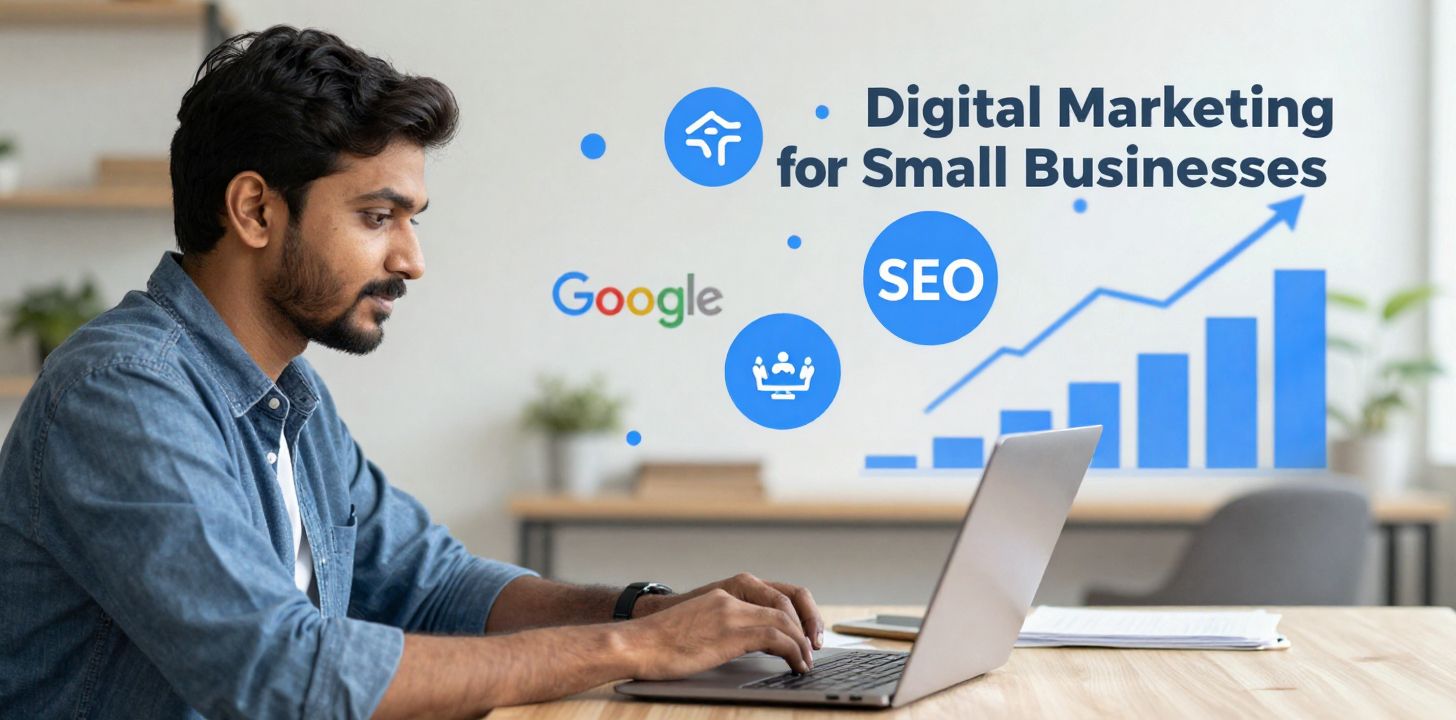Small businesses are the backbone of the economy. They drive the local neighborhood, support charities, and non-profits, and provide jobs. But starting and growing a small business isn’t easy. It’s not as simple as opening for business one morning and watching your profits grow. To succeed in today’s marketplace, small businesses need to take advantage of all available tools to increase visibility, boost brand awareness, and drive more traffic to their website—all while operating on a limited marketing budget. Fortunately, that’s where digital marketing comes in. If you’re ready to take your small business to the next level with some strategic digital marketing tactics, this article will give you everything you need to know about how to do so successfully and efficiently.
What is Digital Marketing?
Digital marketing is a strategy used to attract customers through the use of online channels. Companies can use digital marketing to promote their products or services, increase brand awareness, drive sales, and build customer relationships. It can be used to advertise goods and services, build brands, generate sales leads, evaluate the effectiveness of a campaign, or enhance an existing product. Digital marketing channels are technologies with which one can interact to enable the marketing process. These technologies can be broadly divided into two categories: Traditional advertising techniques include newspapers, radio, and TV, while digital advertising techniques include email marketing, search engine marketing (SEM), social media marketing, and web push technologies such as Google’s AdWords, Bing Ads, and social media advertising (e.g., Facebook ads, and Instagram ads).
How to Succeed with Digital Marketing for Small Businesses
If you want to succeed with digital marketing, you need to make sure that you’re doing more than just implementing the strategies. You need to make sure that you’re executing each strategy properly, that you’re using the correct tools, and that you’re tracking and measuring the results of your efforts. Digital marketing is a complex process, but when you’re equipped with the right information and tools, it’s not impossible. With that said, here are a few key tips to keep in mind as you get started.
Do Your Homework:
Before you start implementing any digital marketing strategies, make sure that you’ve done your homework. You should have a clear understanding of your target audience, their needs, and what your company offers that is different from your competitors.
Select the Right Strategies:
The most important part of digital marketing is choosing the right strategies. If you are going to spend your time and money on digital marketing, you must select the strategies that will have the greatest impact on your brand and business.
Invest in the Right Technology:
Successful digital marketing requires that you use the right tools and technology. You need to use a website that is optimized for search engines and has an effective design and layout. You need to create content that is both engaging and relevant and develop a social media strategy that engages your audience and creates an online community around your business.
Track and Measure Results:
Finally, for digital marketing efforts to be successful, you need to track and measure the results. Without tracking and measuring results, it’s difficult to determine if your efforts are successful or not.
Proven Strategies for Small Businesses
Now that we’ve gone over the basics of digital marketing and how it can benefit your business, let’s dive into three proven strategies that you can use to take your digital marketing game to the next level.
Social Media Marketing
Social media marketing is one of the easiest and most effective ways to market your business online. It’s also one of the most cost-effective strategies available to you. With social media, you can connect with current and potential customers and build a brand image that is both authentic and memorable.
Let’s take a look at some of the most popular social media channels and how you can use them to market your business.
Facebook is the most powerful business promotional platform. Regardless of whether you are a small business or a multinational company, Facebook provides a vast array of functions to help you grow your audience, increase sales and visibility.
Instagram is a great way to visually promote your business and connect with your target audience. With over 2 billion active users, Instagram has great tools to help you build brand awareness, increase sales, and build trust with customers.
Twitter (X)
Twitter (officially rebranded as X) is a powerful platform for building brand awareness, connecting with customers, and driving traffic to your website or products. With over 400 million active users, it’s a real-time marketing tool that can create instant visibility for your business.
Paid Marketing
Paid advertising is an essential component of any digital marketing strategy, but it’s important to understand that it’s not a one-size-fits-all approach. In order to be successful, you need to use paid ads in a way that is relevant to your target audience and consistent with your brand. With paid advertising, you have a lot of flexibility and can choose from a variety of different ad types, such as search ads, display ads, and social media ads.
Contant Marketing
Content marketing is the process of creating consistent and relevant content for your audience and then promoting that content across various channels to drive traffic to your website and convert those visitors into paying customers. By creating valuable content and effectively promoting it, you can generate leads for your business, improve brand awareness, and generate more leads for your business. For example, you can create a blog and post articles regularly that provide useful information to your target audience, such as recipes, tips, and tricks, or resources that are helpful to your industry or profession. You can then promote your blog posts across various social media channels, publish them on your website, and syndicate them across other websites and publications.

